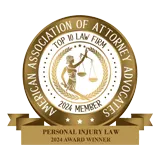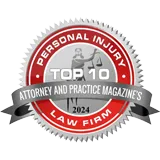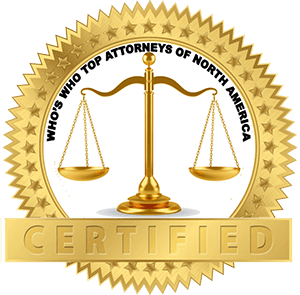Wisconsin personal injury attorney for ear injuries caused by negligence
Ringing in the ears (aka tinnitus), hearing loss and other types of damage to the ear can result from head and neck injuries in a car accident. Air bags are another common culprit, as they can injure the inner ear and cause temporary or permanent loss of hearing in one or both ears.
If you’ve been experiencing ringing in the ears, ear pain or hearing damage after a motor vehicle accident, you may be entitled to financial compensation for your medical bills and other expenses.
Can you sue? It all boils down to:
- Who or what caused the accident
- Proving your ear injuries resulted from the crash, and
- Building a strong case to support your injury claim
Symptoms like tinnitus aren’t as obvious as a broken bone or laceration, but you are suffering and you do have the ability to take action. Recognize the signs and symptoms of ear injuries and get all necessary medical treatment. To learn whether you have a strong case and what your claim could be worth, contact Steve Caya for a free case assessment.
There’s no obligation to discuss your claim and learn more. All injury cases are handled on a no-win, no-fee basis.
What causes ringing in the ears after a car accident?
Tinnitus is the medical term for ringing in the ears. Pulsatile tinnitus happens when there are problems with blood flow in the neck or face (often due to damaged blood vessels). It sounds like a rhythmic whooshing or pulsing from inside your body.
Non-pulsatile tinnitus noise is much more common. It is non-rhythmic in nature and can be caused by nerve problems and damage to the inner ear.
After an auto accident, either type of tinnitus can happen as a result of trauma to the head and neck.
Whiplash + ringing in the ears
Whiplash can cause ringing in the ears in different ways. There are many nerve fibers and blood vessels in the head and neck that can be damaged by the violent back-and-forth motion of a whiplash injury.
Whiplash can also injure the jaw, leading to ear pain, tinnitus and more. For accident victims who develop whiplash injury syndrome, symptoms like tinnitus and hearing loss can persist for months or even years.
Head trauma + ringing in the ears
Head and brain injuries commonly cause tinnitus – in fact, ringing in the ears is one of the symptoms of concussion (a traumatic brain injury). Some people also experience increased sensitivity to noise, or hearing loss after head trauma. Tinnitus can result from damage to the inner ear and/or the auditory cortex in the brain after hitting your head.
Persistent ringing in the ears is a serious injury
Ringing in the ears that won’t go away can ruin your quality of life. Don’t pay for someone else’s mistake.
Tinnitus that won’t go away can ruin your quality of life, including:
- Difficulty sleeping
- Inability to focus
- Increased stress and tension
- Memory problems
Victims of neligence with lasting ringing in the ears deserve financial compensation for pain and suffering, lost time at work, loss of enjoyment and other damages.
But collecting a fair settlement for ringing in the ears caused by a collision hinges on proving fault.
Proving tinnitus from a car crash
Tinnintus is a subjective, not objective condition. This means there are no diagnostic tests to prove ringing in the ears – your doctor has to diagnose it based on your symptoms.
There are many other health conditions that can cause ringing in the ears, and the insurer responsible for paying your claim will look for evidence that your tinnitus stems from anything other than the accident (such as high blood pressure, ear infection, side effects from medications & other possible causes).
It’s imperative to seek medical attention for ringing in the ears as soon as possible after a car accident. Your medical records and doctor’s notes will be fundamental in proving the extent of your injuries so you can be fairly compensated.
Working with an experiened attorney can make all the difference in proving tinnitus resulted from a car crash. Steve Caya works with a network of specialists including medical doctors, accident investigators, rehabilitation professionals and others to build the strongest possible case.
How car accidents can cause ear pain
The physical forces involved in a motor vehicle collision can be immense, even at relatively low speeds. When the force of an impact reaches your body it can cause a wide range of injuries and symptoms, including ear pain.
Ear pain following a crash can result from injury to the ear, jaw, neck or head:
- The inner ear is delicate and complex. Head trauma, a sudden change in air pressure, or loud noise can injure the sensitive structure inside the ear.
- Jaw injuries like a mandibular fracture or sprain can cause radiating pain that you feel in your ears (aka TMJ ear pain).
- Damage to the neck and cervical spine can cause eustachian tube dysfunction (the passage connecting the inner ear and upper throat), leading to ear pain and loss of balance.
- Whiplash ear pain can be experienced with or without ringing in the ears or hearing loss.
- Head trauma can not only lead to ringing in the ears, but also ear pain from damage to the membranes inside the ear, a torn eardrum, disclocated ossicles (small inner ear bones) or blocked blood flow to the vessels supplying the ear.
Ear pain after a car accident needs to be taken seriously
Even a minor collision can lead to ear pain and hearing damage. Always get it checked out.
Car accident victims can experience many different types of ear pain as a result of the collision, including:
- Earaches
- Inner ear pain
- Severe ear pain
- Intermittent stabbing pain in ear
- Ear fullness
- Sore ear(s)
- Damage to outer ear cartilage
Ear injuries often involve related issues like dizziness, nausea, vision problems and more. If you’re experiencing any type of ear pain after a car accident you need to get it checked out by a doctor ASAP to protect your health and your injury claim.
Fight for your ear injury compensation
The settlement amount you can collect for an ear injury depends on the diagnosis and prognosis – and also on the quality of attorney you have representing your claim.
Getting your ear pain evaluated by a doctor is step one. If you believe your ear pain was the direct result of a car accident, get your injury claim evaluated by an attorney.
To get a fair settlement, you’ll need to prove liability (who was at fault) and scope of damages (putting a price tag on your pain and suffering, and other losses).
The negligent driver’s insurance company has their own legal teams trying to minimize your settlement amount. You deserve an experienced injury lawyer fighting for your side.
Hearing loss after a car accident
Take action when you suffer ear injury or hearing loss in an accident.
Hearing loss can be caused by injuries from a car crash or other accident, typically as the result of head trauma or airbag deployment.
Head injuries can cause hearing loss when:
- The bones in the middle ear are fractured
- The cochlea (hollow inner ear bone) is fractured
- The temporal bone (part of your skull) is fractured
- The brain and/or inner ear are bleeding
Airbag deployment can cause hearing loss when the noise from the airbag exploding causes sufficient sound pressure to rupture the eardrum.
Degrees of hearing loss
Hearing loss doesn’t necessarily mean a total loss of hearing. Car accident victims can suffer temporary or permanent hearing loss to a degree that causes:
- Difficulty hearing soft voices, especially when background noise is present
- Difficulty understanding speech at low or moderate volume
- Inability to understand speech without high volume and/or lip-reading
- Inability to comprehend speech without a hearing aid or other device
- Deafness
Hearing loss from trauma can occur in just one ear or both, and may occur on its own or in conjunction with ear pain and tinnitus.
Getting compensated for hearing loss caused by negligence
You have the right to compensation for hearing loss caused by another person’s negligence.
Hearing loss can have a profound effect on a person’s ability to work, maintain relationships, stay independent and enjoy activities.
If you’ve suffered total or partial hearing loss as a result of another person’s negligence you may be eligible for financial compensation to cover:
- Pain and suffering
- Loss of enjoyment
- Lost income
- Medical expenses (including predicted future costs)
- More
To get the compensation you deserve for hearing loss or any type of ear injury, proving negligence is crucial. Wisconsin’s comparative fault law means if you are found to be even partly to blame for the crash, the size of your settlement can be reduced.
Start with a free claim review by a personal injury attorney to get an idea of the types of damages you may be able to claim, and the best next steps for proving fault and building a strong case.
Wisconsin statute of limitations for ear injury & hearing loss claims
In Wisconsin the statute of limitations for injury claims including tinnitus, ear pain or hearing loss from a car accident is 3 years. [§893.54] The time limit is measured from the day of the accident. There are several other Wisconsin car accident laws that can affect your settlement.
Every state has its own time limit for personal injury claims, so you’ll need to contact an attorney in your area to verify you’ve got enough time and good reason to sue.
To maximize your potential settlement amount, you need to take a strategic approach to handling your injury claim. The caliber of attorney representing your claim can be an enormous factor in the amount of compensation you’re able to collect.
Steve Caya is a former insurance industry insider. He spent years working as legal counsel for insurance companies, and understands what it takes to make them pay what accident victims deserve. If you’ve been injured in a car accident and need legal representation, there’s no one better to call than a proven attorney who’s been on both sides.
Contact me today for a free consultation.


















